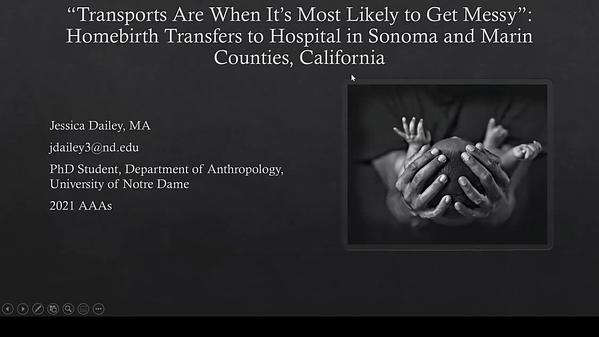Would you like to see your presentation here, made available to a global audience of researchers?
Add your own presentation or have us affordably record your next conference.
keywords:
medical anthropology
biomedicine
epistemology
This is Panel I of a proposed double panel which is sponsored by the Complementary and Alternative Medicine (CAM) and Integrative Medicine (IM) Special Interest Group of the Society for Medical Anthropology. In recent years, there has been an increase in the availability of complementary and alternative medicine (CAM) specialties within hospital and biomedical settings in both the Global North and South, suggesting a trend toward integrative medicine (IM). While many CAM practitioners are heralding this development as a turn for the better and a win in a long-held battle with conventional biomedicine as the hegemonic adversary, this panel addresses the complexities and ambivalences of CAM’s emplacement within biomedical settings. Our papers explore how•and if•this turn has changed the way that CAM practices are being taught alongside and integrated into biomedical approaches. Historically, anthropological interest in the use of CAM has focused on medical pluralism and mainstream dissatisfaction with conventional biomedicine. In many cases, CAM troubles modern distinctions between the medical, spiritual, and religious. Its healing techniques frequently address relations in holistic ways that challenge biomedical assumptions that ill-being resides solely in the self-bounded physical body. In contrast to conventional biomedicine, CAM is marked as “indigenous” or “traditional”. This markedness bespeaks an unequal dichotomy•articulated today in the context of neocolonialism, late liberal capitalism, and biomedical hegemony•that has long contributed to two different domains within which patient-clients are treated: the public domain of a hospital or clinic (for biomedical treatments) versus the private domain of a practitioner’s treatment site (for holistic treatments). Anthropologists have productively challenged this dichotomy, pointing out how these domains are entangled and even mutually constituted in practice, while also raising concerns over issues such as the cost of treatments and differential insurance coverage, the co-option and commodification of indigenous knowledge, and problematic power dynamics between patient and doctor, client and practitioner. The papers on this panel grapple with knotted formations of ethics, power, professionalization, standardization, and the co-option of practice within biomedical settings. They foreground a range of actors working at the interface of CAM/IM and biomedicine, including: local, state, and federal bureaucratic administrators; reiki practitioners; functional medicine patient-provider partnerships; Buddhist monks and doctors; World Health Organization policy-makers; therapists, shamans, and psychologists; multidisciplinary academic researchers; midwives and doulas; and more. Our ethnographic encounters engage the shifting terrain of mental illness worldwide, the frictions between allopathic, naturopathic, and homeopathic epistemologies in the context of emergent disease patterns, the moral economy of beginning and end of life care, and the larger political-economic challenges and effects of integrative practice. Finally, this double panel brings together a diverse group of academic, applied and practicing anthropologists working on these issues across four continents and drawing upon fieldwork experience in Cambodia, China, France, Hong Kong, India, Switzerland, Tanzania, Tibet, Uganda, the UK, and the USA.

